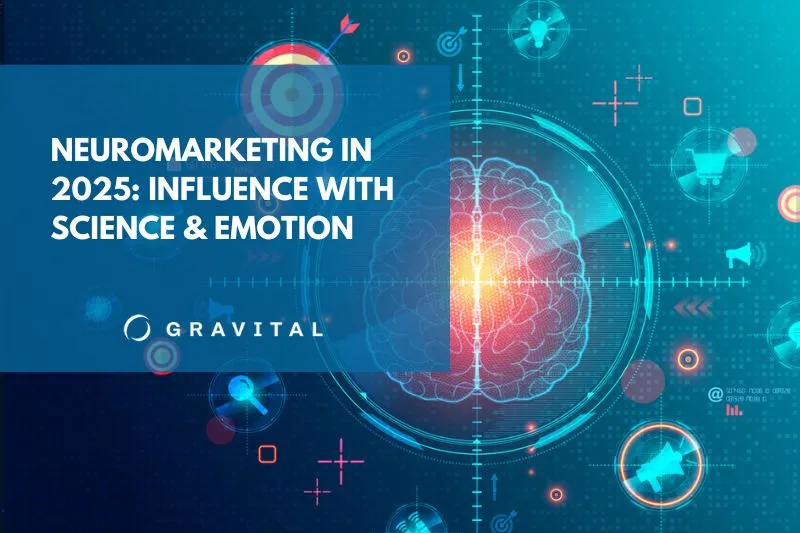Digital marketing offers multiple strategies and channels for businesses selling products or services to other businesses. One such strategy is content marketing—a cost-effective digital marketing tactic known for excelling at driving conversions and sales.
What is B2B Content Marketing?
Content marketing is a digital marketing tactic that involves creating, publishing and distributing high-quality content to attract, engage and convert a target audience.
Business-to-business (B2B) content marketing uses valuable content designed to boost online presence, strengthen a brand, generate leads, influence business purchase decisions and drive sales. To have this effect, the content must be relevant and useful to the target audience.
B2B content marketing helps build trust and brand loyalty better than any other digital marketing tactic out there. When you regularly publish content that provides solutions to your target audience’s pain points, you position your company as an industry expert or thought leader that your prospects and customers can trust and turn to when making purchase decisions.
Some examples of B2B content marketing are blog posts, eBooks, case studies, white papers, infographics, webinars, newsletters and videos, among others. Producing and publishing online content costs less than traditional marketing tactics such as mass media advertising, direct mail and trade shows.
Because B2B content marketing needs to be well-crafted, relevant and consistent in order to deliver results, companies frequently struggle to produce the right type of content and publish it on a regular schedule while they focus on other core business functions such as operations, finance and human resources. Hiring a reputable digital marketing agency helps companies avoid this pitfall.
A business that fails to connect with its prospects and buyers and influence their purchase behavior cannot stay afloat.
Today’s consumers don’t respond well to being bombarded by ads, many of which are irrelevant to them, or hard sell techniques like cold calling or unsolicited pitches. They prefer high-quality online content that helps them solve their problems.
B2B content marketing helps businesses communicate with your audience without selling but by nurturing relationships. Instead of pitching products or services, you can deliver content that informs and educates prospects and customers with the expectation that they will eventually reward you with their business or loyalty.
Does It Work?
Yes. High-quality, relevant, helpful content boosts website traffic, educates visitors and helps them convert. B2B content marketing uses a mix of top-, middle- and bottom-of-the-funnel content to target buyers at different stages of the buyer’s journey.
7 Notable B2B Content Marketing Stats
- Content marketing generates three times more leads than paid search advertising.
- 91% of B2B companies use content marketing, and of the 9% that don’t use it, 54% plan to begin using it within a year.
- Small businesses that publish blogs get 126% more lead growth than small businesses without blogs.
- 47% of buyers consume three to five pieces of content before reaching out to a sales rep.
- 43% of B2B marketers say blogging is their most important type of content.
- 46% of marketers say content creation receives the greatest share of their marketing budgets.
How to Leverage B2B Content Marketing for Higher Sales
1. Set Objectives
Why do you want to develop B2B content? Do you seek to strengthen your brand, generate leads? Are you trying to attract new customers or reach existing ones? Before you embark on a B2B content marketing campaign, you need to answer these questions. Without a clear goal, your campaign is bound to fail.
2. Identify and Understand Your Audience
B2B content marketing works because it helps companies build relationships with buyers. If you don’t know your buyers, how can you communicate with them?
Before you begin creating and publishing content, you should craft your buyer persona(s)—a detailed description of your buyer(s) that includes job title, location, gender, age, interests and other key information that allows you to target, reach and attract those buyers.
You can get an idea on how to create buyer personas through online articles on the subject or work with a reputable digital marketing agency with B2B content marketing expertise.
3. Create Superior Content
To attract and engage buyers, your content needs to be relevant, valuable and consistent. Following are a few tips to help you produce remarkable B2B content:
- Keep it simple so that your target audience can understand it. Avoid jargon.
- Focus on telling interesting stories that educate, inspire, help or entertain rather than on selling. Remember that although you’re targeting professionals, they are real people.
- Address your buyers’ pain points and provide solutions.
- Make it personal. Use content to personalize your target audience’s experience with your brand. You can customize content by buyer persona, audience segment (job title, industry, age, location, etc.) and stage in the buying cycle. Personalized content is more likely to reach, engage and convert your audience.
- Keep your content fresh. After publishing B2B content for a while, you may find that you’re running out of topic ideas. You can expand your list of ideas by researching topics online, interviewing your sales team and customers, reading trade publications and attending industry events.
- If it fits your business, encourage user-generated content such as ratings and reviews. Numerous studies show that most buyers turn to this type of content to make purchase decisions. Displaying reviews can increase conversion rates by up to 270%.
- Make your content visually appealing with, for example, color, photos, infographics and animation.
- Include special discounts or promotions to entice your B2B audience to act.
- Publish your content consistently. Inactive blogs and social media accounts can erode your credibility and disappoint your audience.
4. Distribute Your Content Wisely
Without a well-planned distribution strategy, your audience won’t find your content. Distribution can be paid, such as Google or Facebook ads, or organic, such as search engine optimization (SEO), social media marketing, email and crowdsourcing.
5. Measure and Analyze Results
Be ready to experiment. B2B content marketing is a process that requires time, trial and error. Measuring and analyzing your results will help you determine what’s working and what isn’t working for your business, focus on what’s working and avoid making the same mistakes again and again.
- 88% of top performing organizations regularly track their content marketing progress and return on investment, compared to 56 percent of their least successful peers.
Digital marketing analytics tools and/or an experienced digital marketing agency can help you track and optimize your B2B content marketing efforts.
Final Word
With its focus on providing high-quality content that is valuable to a target audience, B2B content marketing can attract prospects, engage them with content, enhance and convert them into paying customers.
Would you like to increase your sales with B2B content marketing and grow your business? We can help. Talk to us.


